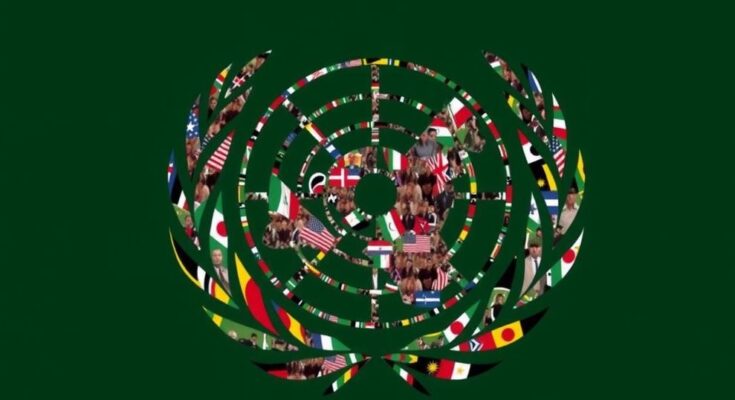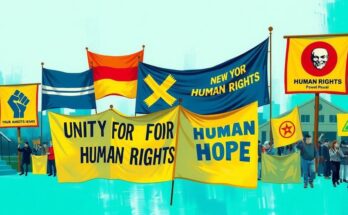The United Nations is investigating attacks on minorities in Bangladesh, a concern raised after the political upheaval in August. UN human rights chief Volker Turk emphasized the need for thorough investigations and accountability for attackers. He praised efforts by local communities to protect minorities and highlighted the importance of due process in any legal actions, especially against political figures. The situation remains tense following the ousting of ousted Prime Minister Sheikh Hasina amid widespread protests.
The United Nations is currently conducting an investigation into the reported attacks on minorities in Bangladesh, following the tumultuous political changes in August. During his visit to Dhaka, UN High Commissioner for Human Rights Volker Turk met with various officials, including interim government Chief Adviser Muhammad Yunus, emphasizing the importance of addressing these serious allegations. Turk highlighted that the investigation focuses on incidents reported between August 5 and 15, a period marked by unrest and heightened risk for vulnerable communities. He praised the initiative shown by students and community members in safeguarding minority populations amidst this turmoil. Moreover, the UN human rights chief urged the Bangladeshi authorities to promptly and thoroughly investigate the reported incidents and hold responsible individuals accountable. He noted that building trust among minority communities is essential, especially amid concerning trends of misinformation and hate campaigns proliferating on social media. In September, the Hindu Bouddha Christian Oikya Parishad (HBCOP), a prominent organization representing minorities in Bangladesh, had requested a UN investigation into communal violence. Turk stressed the importance of ensuring that any legal proceedings respect due process and fair trial standards, particularly in high-profile cases like those handled by the International Crimes Tribunal. Bangladeshi authorities are contemplating action against former Prime Minister Sheikh Hasina and her associates, accused of crimes against humanity during the July-August unrest. Turk cautioned against prosecuting individuals based solely on political affiliations, particularly members of the Awami League, amidst concerns regarding the validity of numerous charges against journalists and activists. The political landscape of Bangladesh shifted dramatically two months ago when a student-led movement resulted in the ousting of Prime Minister Sheikh Hasina after violent protests led to over 600 fatalities. Hasina fled to India on August 5, paving the way for an interim government headed by Nobel Laureate Muhammad Yunus, which now faces the challenge of restoring stability and justice in the country.
Following the political upheaval in Bangladesh in August, where the interim government was established after violent protests, concerns about the safety of minorities have escalated. The UN’s involvement aims to address these serious human rights violations amidst a backdrop of widespread unrest and political tension. The HBCOP’s previous call for investigation indicates the long-standing issues faced by minority groups in the region, amplifying the need for international oversight and accountability.
The ongoing investigation by the United Nations into attacks on minorities in Bangladesh highlights the urgency of addressing human rights abuses in the nation. As tensions rise and misinformation spreads, it is critical for authorities to respond decisively to protect vulnerable populations and restore trust in the justice system. The political landscape continues to evolve, revealing deeper systemic issues that need addressing for stability and fairness.
Original Source: www.aninews.in



